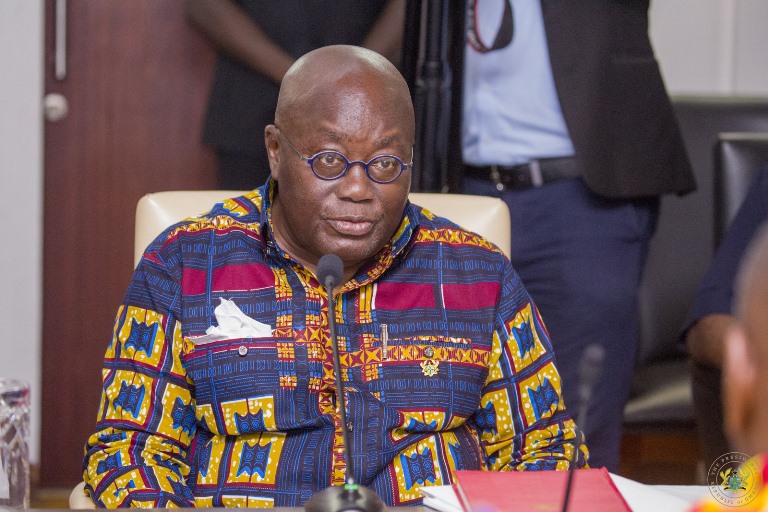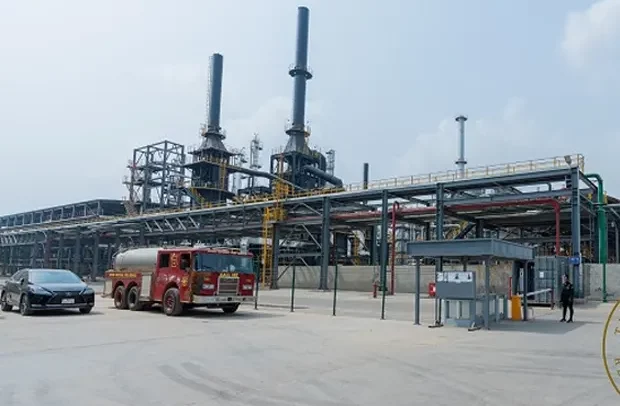
Senior Staff of the Volta River Authority (VRA), and the VRA’s division of Public Services Workers Union (PSWU) of the Trades Union Congress (TUC), have petitioned government, asking for the withdrawal of the public advertisement seeking to engage the services of a Transaction Adviser, to sell specified thermal plants of the company.
The workers in a resolution reached at the end of a meeting on August 25, 2017, forwarded their demands to the Ministers of Energy, Employment and Labour Relations, Finance and the National Security Minister.
They warned that, they will “marshal all available legitimate forces to stall the process and save VRA for mother Ghana” if government goes ahead with its decision to sell off the plants.According to them, the decision to sell off the thermal plants through an advertisement in the Daily Graphic on August 24, 2017, came to them as a surprise since they were not consulted.
“The advertisement has brought disappointment and agitation to the rank and file of VRA, and almost paralyzing VRA’s power operations. The non-engagement prior to this advertisement is a breach of the VRA ACT 1961 (Act 46) as amended, specifically 2, 3, 19 and 20. This is therefore a complete breach of trust and non-adherence to good corporate governance principles.”
The workers in their resolution said “we therefore resolve that: the advertisement be withdrawn. The decision to sell any VRA Thermal Assets be rescinded, VRA’s Thermal and non-power generating assets are not for sale.”
They added that, “Whatever informed the decision to sell was not based on any proper root cause analysis of VRA’s problems and that of the entire power sector. Mr. President, please intervene to stop the process of the sale of VRA assets to avoid potential industrial action. We are expecting your response in 14-days after the date of this resolution.”
The government has already advertised the sale of at least a majority stake in specified thermal plants, and it has argued that, the VRA was not doing a good enough job with the management of the thermal plants, and should focus on just hydro power generation.
But the senior staff of the company disagree with government’s reasons for the intended sale.
It rather wants government to among other things, “restructure the company, by ensuring that independent power producers such as AMERI, TICo/TAQA, Asogli and CENIT, procure their own fuel.They must also be made to sell their expensive power directly to the distribution companies and other customers rather than making VRA the off-taker. Government must stop compelling VRA to sell power to customers like VALCO at subsidized rate.”
The workers also want government to “inaugurate a governing board immediately for the VRA as prescribed in Section 3, (1) of the VRA ACT 1961 (ACT 46) as amended. There must be proper engagement in all decisions that impact on the sustainability of VRA” they added.
We’ll resist sale of VRA thermal plants – Mutawakilu
The National Democratic Congress (NDC) Minority in Parliament has already warned that it will vehemently resist attempts to sell some thermal plants of the Volta River Authority (VRA).
The Minority’s Spokesperson on Energy, Adams Mutawakilu, speaking on Eyewitness News recently stressed that, selling the VRA thermal plants should not be an option for government.
“The sale of VRA thermal plants shouldn’t be considered. It shouldn’t be an option. If that is their option, they should rethink because there will be resistance from well-meaning Ghanaians, from the NDC in respect to the sale of the thermal plants.”
“We will do everything including demonstrations. We will undertake stakeholder consultations to get stakeholders on board… whatever we will do to ensure that it becomes very difficult to sell off government assets, we will do it” he stated.
Consumers will suffer
The Minority has long maintained that, this move will compromise Ghana’s power security and the comfort of consumers.
“If you take the total energy generation, the government has control of 65 percent of the total power generation; 1,254 megawatts for thermal, and 1,580 megawatts for hydro,” Mr. Mutawakilu noted.
The Independent Power Producers are responsible for 1,505 megawatts, thus “the moment we sell off this plant, government will control only 36 percent and 64 percent will be controlled by the private sector. You know they are profit oriented, so apart from power security, it is going to lead to high tariffs,” the MP said.
This would be a slap in the face of the government’s promise to reduce electricity tariffs for Ghanaians, Mr. Mutawakilu added.
“With the steps they are taking, if you want to actually reduce tariffs, you don’t handover power generation to the private sector, and that is why we are against it. The ordinary consumer will suffer… there is no way we can sell our assets and the private sector takes control then we come out and say we want to reduce electricity tariffs.”
–
By: Ebenezer Afanyi Dadzie/citifmonline.com/Ghana



























Facebook
Twitter
Pinterest
Instagram
Google+
YouTube
LinkedIn
RSS